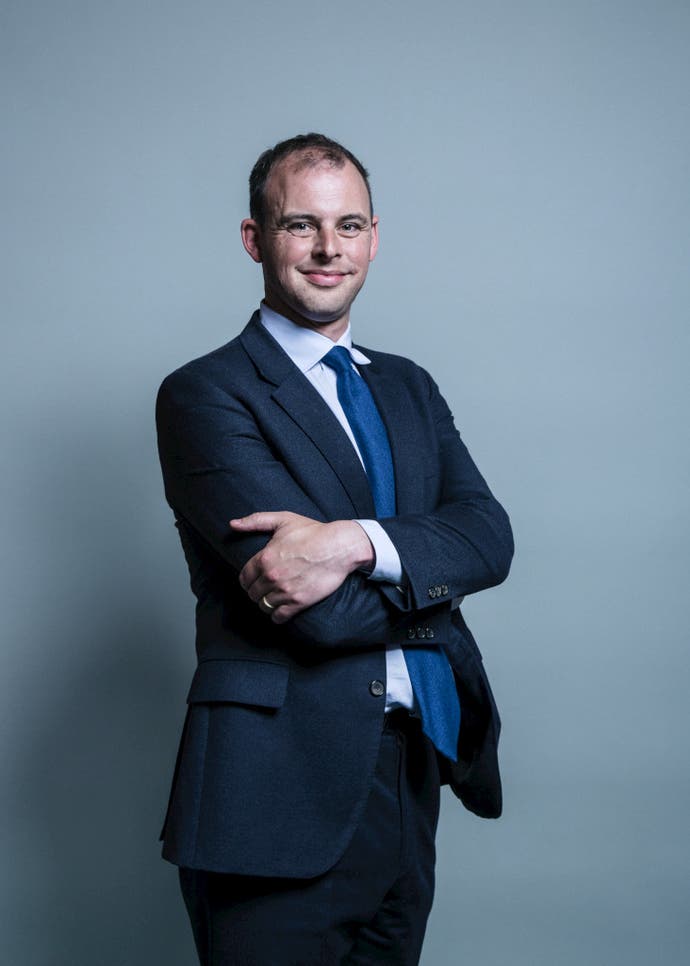From child gambling to women in Ultimate Team, EA Sports refuses to budge
A FIFA 20 press event sees the developer take a grilling.
EA Sports has "no plans" to put an age limit on in-game spending, saying it's up to platform holders to manage that side of regulation. It also has "no changes" planned for FUT packs in light of increasing governmental scrutiny, "no plans to change" with regards to putting a cap on purchasing FUT packs, and said allowing progress to carry over from one to the next is "not something we've considered in the short-term". Adding women's football players to pre-existing clubs in FUT is also "not something we're doing in FUT 20", according to the developer.
That rather steadfast position was made clear at a dedicated FUT presentation, during EA's FIFA 20 event held in Berlin last month, at which Eurogamer was present. (We also saw more of the Volta mode and changes to standard 11v11 gameplay - more on that soon.)
During the FUT presentation itself Garreth Reeder, lead producer on FIFA Ultimate Team, spent some time explaining the various additions to the mode, including Season Objectives, new house rules sub-modes aimed at the casual player, and some menu tweaks, fielding questions from the press in attendance. Most of those questions, from both the gaming and international, mainstream press, got the same answer.

Early on, one member of the group asked if EA is happy with how microtransactions are presented in the game now, following the addition of pack odds last year, and whether any further plans to evolve depend on government pressure.
"No, not currently in 20," Reeder said, going on to mirror the sentiment from Eurogamer's FIFA interview at gamescom last year, that adding the pack odds was a voluntary measure. "I think, you know, obviously we're going to keep an eye on things, as to how they go, but the packs odds that we put in, that was something that we just wanted to do for people to see and have more informed choices about what they're getting in the game. And the reaction - we weren't sure what the reaction was going to be - but I think with the community it's been good, and we'll just continue to monitor that feedback as we go forward."
When it was noted that government pressure is only going to increase with regards to loot boxes - alongside Belgium's decision to declare loot boxes as gambling, in June EA took a kicking from Parliament here in the UK when it dubbed loot boxes "surprise mechanics" - in EA's defence Reeder added: "We see it, we're obviously aware. I think like the rest of the industry, we're just keeping an eye on where that goes but, currently, we've got good feedback from players, there's no changes, or no planned changes in FUT coming."
Another member of the press asked whether EA Sports had considered putting a maximum limit on the amount of packs purchased, as a way to stop players or children overspending. Reeder replied that this was down to "consumer choice". This time last year, Eurogamer reported on a man who used a GDPR request to discover he had spent $10,000 on FUT packs in two years without realising.
"No, it's maybe - based on feedback - something we look at down the road. But, I think, we look at it as consumer choice for what they want to open. There's still more packs opened through coins than through FUT Points in the game. We'll keep listening to feedback but we've no plans to change that."

The same goes for age limits (on the morning of the event, the BBC published an article detailing four children's spending on FIFA, totalling £550 in the space of three weeks).
"Age limits we still partner closely with - on our own side, with Origin - but with Microsoft with Sony, all that's at a platform level. That may change at some point but no plans currently to change that."
Does EA have any plans to let people's FUT progress carry over from one game to the next, regardless of how much they have spent or played? No. In fact, according to Reeder, players are "very excited... to start fresh". Although there was a curious hint at a non-annualised future for the series, at the very least.
"I think it's not something we've considered in the short term. Maybe in the future, in a world where the game isn't refreshed in the same way it is year-on-year, that might be something we'd consider. But I think, at this point, especially when I look at community feedback later in the cycle, people have their teams that they're playing with - like right now it's Futties which is sort of the community-driven campaign going on, where people are very excited to jump into the new game, start fresh and keep pushing it through.
"We do some carry-over in terms of returning user rewards going into the next title, but allowing people to take their full set of content into the next title would have major challenges in terms of game balance and the type of content that people have in the game. That's really the primary reason."
Finally, after responding to further questions about whether Volta mode would feature in Ultimate Team or whether anything more than loan players, which expire after a few matches, would feature as rewards for the new Season Objectives (both no), EA was asked whether the recent, hugely successful women's World Cup had led them to consider adding female players to Ultimate Team mode.
"Again we have talked about it," Reeder replied. "We did run into challenges with some of the core systems within FUT, club affiliation, chemistry. So it might be something we look at going forward but, not something we're doing in FUT 20."
What about the fact that - as the journalist asking the question noted, gesturing to the almost entirely male room - it's "mostly guys playing?" Would adding women's football to FUT not at least go some way to help get a more diverse audience playing EA's game mode?
"It would be great, you know, ever since we introduced the feature in core FIFA, it's something we've been thinking about." EA Sports added women's international teams four years ago, for FIFA 16. Since then FUT has continued to include retired or deceased footballers in the form of Icons, the fictional Alex and Jim Hunter players from the Journey mode, in the case of FIFA 17, 18 and 19, and new modes for FUT 20 that give players super-human speed or sparkling, comet-trailed footballs.
"I think there's licensing issues with some of the ways clubs are represented. We haven't, to this point, had 11v11 gameplay with mixed co-ed in FIFA as well. So yeah not something we've talked about for this year but maybe in the future."

It's clear, then, that despite gathering pressure from players and governments alike, EA Sports will not change unless it is made to.
For now, at least in the short term, that seems unlikely. While Parliament did indeed give the likes of EA and Fortnite publisher Epic a grilling at the end of June, in early July the (now former) digital minister Margot James told the Culture Select Committee, which is leading the enquiry into issues such as loot boxes, that she "would contest the assumption that loot boxes are gambling".
As reported in The Telegraph, she added, "I don't think that all the evidence that I have read would support that assumption either," noting, "importantly, they cannot be traded offline for money."
James' position lines up with that of the UK Gambling Commission, which last year emphasised to Eurogamer sister site GamesIndustry.biz it has "not in anyway... referred to [loot boxes] as exposure to gambling", despite the commission's November 2018 report finding three in 10 children had opened loot boxes while playing video games, that more than half know it's possible to purchase them, the number of child gamblers has quadrupled in two years, 15 per cent of children aged 11 to 16 are aware of skins betting websites, and three per cent of that age group have participated in gambling on them.
Despite the foot-dragging, though, pressure on the government does still remain. That same report in The Telegraph, for instance, noted Labour MP Clive Efford was one of several to press Margot James, asking: "Children are being exposed to all the emotions of gambling, so how is it that the Government doesn't see that as children being exposed to gambling in these online games?"

Scottish National Party MP Brandon O'Hara also suggested the government was being "rather complacent" over the issue, and the committee chair Damian Collins compared FIFA's FUT pack system specifically to a "roulette wheel", noting "someone is making a purchase, which is effectively like someone is spinning a roulette wheel. You don't know what you are going to get, or how good it is going to be, but you are spending money and speculating to get better players for your team".
James, too, did at least respond to those MPs by promising she was "far from complacent", and simply taking her time in order to "get a better understanding of the root causes of the sort of problems you are alluding to," before jumping straight to regulation. (James recently resigned from the role, being replace as minister for digital by Matt Warman, a former technology journalist.)
The pressure from the media continues, too. In the room in Berlin, where EA's presentation to press took place, there was undoubtedly a shift in tone. Instead of press asking about fixing pace, or reworks to the menu, a 20-minute presentation on new features coming to Ultimate Team was followed almost entirely by those questions above - from national papers around Europe - on the actual ethics of the mode itself.
It means that, even if EA itself is as totally resistant to change, on so many fronts, as it made clear in Berlin, we can at least take something from the event: that the conversation around these sorts of mechanics is changing - in the room with EA, and in government - and that unlike the big publishers so far, it is changing for the better.
EA Sports paid for flights and travel to and from the event.










